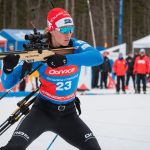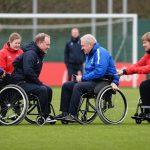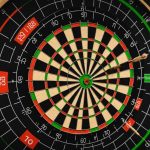Understanding Sports Science in Golf
Sports science is pivotal in elevating golf performance, focusing primarily on biomechanics and physical conditioning. At its core, sports science applies principles that enhance athletes’ skills, and in golf, this means optimizing every swing.
Biomechanics plays a crucial role by studying the mechanics of human movement. It helps golfers refine their swing to achieve greater efficiency and accuracy. For instance, understanding the optimal angle and force required during a swing can significantly boost a golfer’s performance. By analyzing the body’s mechanics, golfers can minimize injury risks and improve consistency.
This might interest you : Essential Recovery Techniques: Cooling Down Properly After a Competitive Swim Meet
Furthermore, physical conditioning is essential in golf performance. A well-conditioned body can withstand the rigors of numerous swings and rounds. Flexibility, strength, and endurance are key physical aspects enhanced through targeted conditioning programs. These exercises not only boost power but also improve control and precision on the course.
Incorporating sports science principles into training regimes allows golfers to better their game by leveraging not just skill but also science. With the right application of biomechanics and conditioning, golfers can achieve their full potential.
Also read : Top Recovery Techniques for Athletes Post-Competition: Rejuvenate and Excel!
Key Techniques for Improving Shot Accuracy
To enhance shot accuracy, it is paramount to dive into the intricacies of swing mechanics. A detailed analysis of one’s swing can unveil common flaws, such as improper stance or incorrect grip, which significantly hamper precision. Regular review and adjustment, alongside expert guidance, can bring these errors to light and improve shot technique.
Furthermore, the role of mental focus should not be overlooked. Elite golfers often harness the power of visualization, imagining the perfect shot before execution. This mental exercise sharpens concentration and boosts confidence, crucial elements for achieving consistent results on the course.
When on the driving range, specific techniques can greatly aid in refining shot consistency. Practicing with targeted drills, like alignment exercises or tempo control routines, can replicate on-course scenarios, allowing players to practice under realistic conditions. By consistently implementing these strategies, players cultivate both mental and physical game aspects, ultimately enhancing their overall performance.
Training Exercises for Enhanced Performance
Incorporating dedicated golf drills into your routine can significantly improve your swing precision and control. These drills focus on key aspects such as hand positioning, tempo, and alignment. By practicing regularly, you can refine your technique and build muscle memory, which are crucial for consistent performance.
Strength training exercises are another pillar for enhancing golf-specific movements. Engaging in exercises like squats, lunges, and core strengthening not only boosts power but also supports balance and stability on the course. A strong, stable body allows for more controlled swings, reducing the chance of errors.
Emphasizing flexibility exercises is pivotal for maintaining overall mobility and minimizing injury risk. Stretching routines targeting the shoulders, hips, and back can improve your range of motion, enabling a smoother, more effective swing path. Programs like yoga or Pilates can be particularly beneficial, as they combine flexibility with strength and balance.
In summary, combining golf drills, strength training, and flexibility routines creates a comprehensive training regimen. This approach ensures you’re well-prepared and robust enough to excel in various aspects of your game, from swing precision to mobility and endurance.
Expert Insights and Best Practices
Gaining guidance from certified golf professionals is essential for anyone serious about their game. These experts offer personalized advice, tailored to individual skills and goals. They provide feedback that’s rooted in expertise, opening pathways for meaningful improvement.
Collaborating with sports analysts can further enhance one’s game. These professionals focus on performance data, offering insights that are often overlooked by players. Through rigorous analysis, they identify areas needing development, ensuring targeted and effective practice sessions.
Delving into case studies of athletes who have successfully improved their performance reveals the transformative power of these expert interactions. Many athletes attribute their significant progress to coaching sessions and the valuable input from sports analysts. By paying close attention to advice and meticulously reviewing performance data, athletes have fine-tuned their techniques, ultimately achieving substantial improvements.
Performance reviews conducted with the assistance of professionals are pivotal in reaching new heights. For those eager to excel, the combination of professional coaching and comprehensive analysis offers a clear path to success, placing them in a prime position to refine their skills and achieve their sporting ambitions.
Integrating Technology for Improvement
Exploring advancements in golf technology reveals significant enhancements in performance tracking and swing analysis. Devices equipped with sensors capture precise swing data, providing instant feedback on swing analysis. Access to this information allows players to refine techniques with greater accuracy.
Performance tracking devices monitor various metrics, such as swing speed, ball trajectory, and club angles. By reviewing this data, which is pivotal during practice, golfers can identify flaws and make necessary adjustments. The immediate insights offered by these tools enable players to develop strategies with a solid foundation in real-time information.
Additionally, innovative apps and tools play a vital role in supporting improvement strategies. These apps provide resources for analyzing performances and suggest tailored drills to address specific weaknesses. Some applications also offer virtual coaching, allowing golfers to connect with experts remotely. By leveraging these digital solutions, golfers can enhance their skills and performance consistently.
The integration of golf technology not only elevates the individual player’s game but also makes the sport more engaging by offering tangible improvements through data-driven strategies. These technologies empower players to make informed decisions, ultimately fostering growth and progress in their golfing journey.
Real-Life Success Stories in Golf Performance
In the realm of golf, athlete testimonials often shine a light on how sports science has revolutionised performance. Renowned golfers like Rory McIlroy and Bryson DeChambeau have embraced scientific training methods, demonstrating performance success by enhancing their physical and mental game.
Notable among these athletes is Bryson DeChambeau, who credits his improved driving distance and accuracy to a combination of biomechanics and data analysis. His testimony underscores how a focus on physical conditioning and swing mechanics provides a competitive advantage.
Another athlete, Rory McIlroy, attributes part of his success to sports psychology techniques and tailored fitness regimes. He highlights the value of mental resilience and physical strength in maintaining focus under pressure.
Integrating sports science into training not only offers a scientific edge but also transforms how players strategise and execute their performance. By investing in these advanced approaches, golfers achieve remarkable growth, as evidenced by these success stories.











